#Presidential Library System
Explore tagged Tumblr posts
Text
A Statement from 13 Presidential Centers: The unalienable rights of life, liberty, and the pursuit of happiness, as stated in the Declaration of Independence, are principles that bind us together as Americans. They have enabled the United States to strive toward a more perfect union, even when we have not always lived up to those ideals. As a diverse nation of people with different backgrounds and beliefs, democracy holds us together. We are a country rooted in the rule of law, where the protection of the rights of all people is paramount. At the same time, we live among our fellow citizens, underscoring the importance of compassion, tolerance, pluralism, and respect for others. We, the undersigned, represent a wide range of views across a breadth of issues. We recognize that these views can exist peaceably side by side when rooted in the principles of democracy. Debate and disagreement are central features in a healthy democracy. Civility and respect in political discourse, whether in an election year or otherwise, are essential. Americans have a strong interest in supporting democratic movements and respect for human rights around the world because free societies elsewhere contribute to our own security and prosperity here at home. But that interest is undermined when others see our own house in disarray. The world will not wait for us to address our problems, so we must both continue to strive toward a more perfect union and help those abroad looking for U.S. leadership. Each of us has a role to play and responsibilities to uphold. Our elected officials must lead by example and govern effectively in ways that deliver for the American people. This, in turn, will help to restore trust in public service. The rest of us must engage in civil dialogue; respect democratic institutions and rights; uphold safe, secure, and accessible elections; and contribute to local, state, or national improvement. By signing this statement, we reaffirm our commitment to the principles of democracy undergirding this great nation, protecting our freedom, and respecting our fellow citizens. When united by these convictions, America is stronger as a country and an inspiration for others. Obama Foundation George W. Bush Presidential Center Clinton Foundation George & Barbara Bush Foundation The Ronald Reagan Presidential Foundation and Institute The Carter Center Gerald R. Ford Presidential Foundation Richard Nixon Foundation LBJ Foundation John F. Kennedy Library Foundation Truman Library Institute Roosevelt Institute Hoover Presidential Foundation
#History#Presidents#Presidential Libraries#Presidential Centers#Presidential Foundations#Presidency#Democracy#National Archives#NARA#Presidential Library System
44 notes
·
View notes
Text
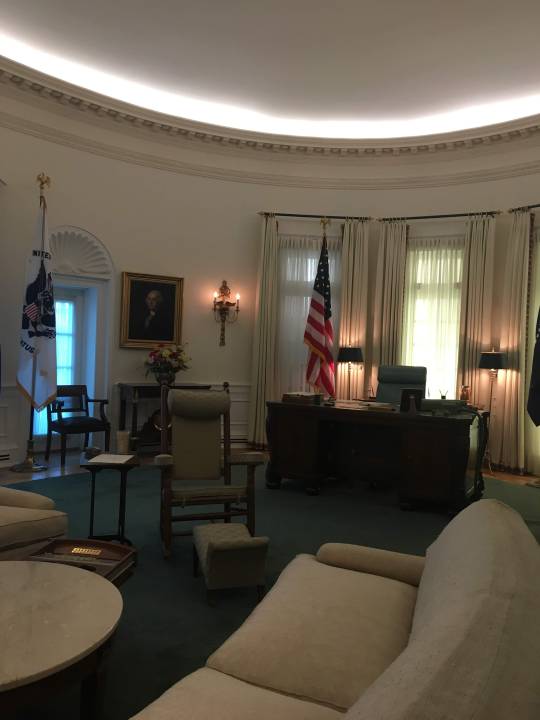



Lyndon Baines Johnson Library and Museum
Lyndon B. Johnson Presidential Library and Museum
LBJ Library: LBJ Presidential Library
Located in the LBJ School of Public Affairs Campus. Visited 27 August 2018.


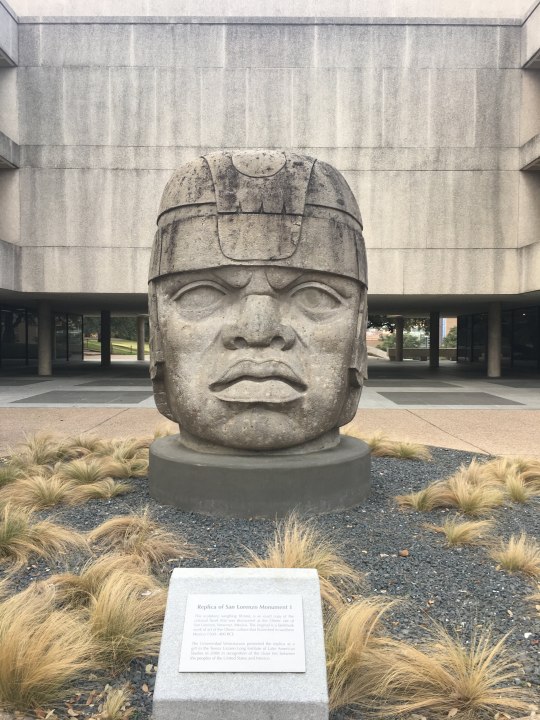
More pictures from the LBJ School of Public Affairs Campus, including the LLILAS Benson Latin American Studies and Collections. Visited January 9 2020.
#Lyndon Baines Johnson Library and Museum#Lyndon B. Johnson Presidential Library and Museum#LBJ Library#LBJ Presidential Library#LBJ School of Public Affairs#LLILAS Benson Latin American Studies and Collections#LBJ Fountain#University of Texas at Austin#UT Austin#University of Texas System#Austin#Texas
0 notes
Text
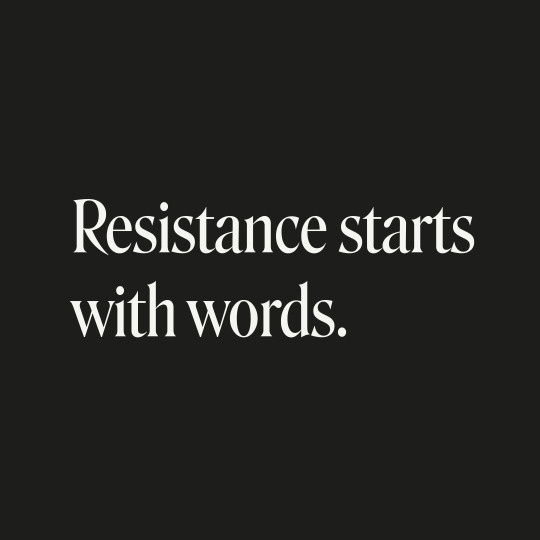
(Read on our blog)
Beginning in 1933, the Nazis burned books to erase the ideas they feared—works of literature, politics, philosophy, criticism; works by Jewish and leftist authors, and research from the Institute for Sexual Science, which documented and affirmed queer and trans identities.

(Nazis collect "anti-German" books to be destroyed at a Berlin book-burning on May 10, 1933 (Source)
Stories tell truths.
These weren’t just books; they were lifelines.
Writing by, for, and about marginalized people isn’t just about representation, but survival. Writing has always been an incredibly powerful tool—perhaps the most resilient form of resistance, as fascism seeks to disconnect people from knowledge, empathy, history, and finally each other. Empathy is one of the most valuable resources we have, and in the darkest times writers armed with nothing but words have exposed injustice, changed culture, and kept their communities connected.

(A Nazi student and a member of the SA raid the Institute for Sexual Science's library in Berlin, May 6, 1933. Source)
Less than two weeks after the US presidential inauguration, the nightmare of Project 2025 is starting to unfold. What these proposals will mean for creative freedom and freedom of expression is uncertain, but the intent is clear. A chilling effect on subjects that writers engage with every day—queer narratives, racial justice, and critiques of power—is already manifest. The places where these works are published and shared may soon face increased pressure, censorship, and legal jeopardy.
And with speed-run fascism comes a rising tide of misinformation and hostility. The tech giants that facilitate writing, sharing, publishing, and communication—Google, Microsoft, Amazon, the-hellscape-formerly-known-as-Twitter, Facebook, TikTok—have folded like paper in a light breeze. OpenAI, embroiled in lawsuits for training its models on stolen works, is now positioned as the AI of choice for the administration, bolstered by a $500 billion investment. And privacy-focused companies are showing a newfound willingness to align with a polarizing administration, chilling news for writers who rely on digital privacy to protect their work and sources; even their personal safety.
Where does that leave writers?
Writing communities have always been a creative refuge, but they’re more than that now—they are a means of continuity. The information landscape is shifting rapidly, so staying informed on legal and political developments will be essential for protecting creative freedom and pushing back against censorship wherever possible. Direct your energy to the communities that need it, stay connected, check in on each other—and keep backup spaces in case platforms become unsafe.
We can’t stress this enough—support tools and platforms that prioritize creative freedom. The systems we rely on are being rewritten in real time, and the future of writing spaces depends on what we build now. We at Ellipsus will continue working to provide space for our community—one that protects and facilitates creative expression, not undermines it.
Above all—keep writing.
Keep imagining, keep documenting, keep sharing—keep connecting. Suppression thrives on silence, but words have survived every attempt at erasure.
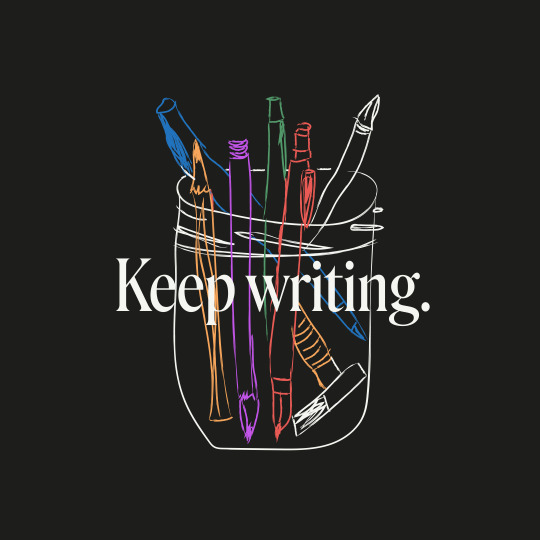
- The Ellipsus team
#writeblr#writers on tumblr#writing#fiction#fanfic#fanfiction#us politics#american politics#lgbtq community#lgbtq rights#trans rights#freedom of expression#writers
4K notes
·
View notes
Text
Taxpayers would likely foot the bill to retrofit President Trump's new jet, which could be more than twice the plane's $400 million value.
May 13, 2025, 3:16 PM MST / Updated May 13, 2025, 6:12 PM MST
By Dan De Luce, Tom Winter, Laura Strickler, Courtney Kube and Gordon Lubold
Converting a Qatari-owned 747 jet into a new Air Force One for President Donald Trump would involve installing multiple top-secret systems, cost over $1 billion and take years to complete, three aviation experts told NBC News.
They said that accepting the 13-year-old jet would likely cost U.S. taxpayers hundreds of millions of dollars over time, noting that refurbishing the commercial plane would exceed its current value of $400 million. The project might also not be completed by the end of Trump’s term in 2029, at which time the plane is expected to be handed over to Trump’s presidential library foundation.
153 notes
·
View notes
Text
here is my presidential platform:
every long-running TV show or franchise must be assigned at least 1 obsessive intern to act as the living show bible. contractually, this individual MUST be in the writer's room when major scenes are being drafted. continuity errors can and will go extinct.
i will also make all pants have pockets, all brands of jean will use the same sizing system, and libraries will have their funding doubled.
105 notes
·
View notes
Text
30 Things I Learned As An Adult
In honor of me turning 30 in January, I’ve decided to write out a list of 30 things I learned as an adult. Now, some of these worked for me through trial and error, while others did not.
1. Self Care Is Important
I cannot stress this enough. We all need to practice self care, to take time for ourselves. It takes baby steps to find a good self-care routine, and there’s plenty of online resources to find one to your tastes. Remember it is all about trial and error, and don’t worry about perfecting it right away. Research some different self care routines online as a starting point.
2. Read Books, Not Fanfiction
Okay, don’t get me wrong, I do love reading some good ole fanfiction, and current events. However, definitely pick up a book once in a while. Whether it’s a graphic novel, comics, manga, please develop a reading habit. It definitely helped me out a lot as a former college dropout, there are reading lists on sites like Goodreads, here on Tumblr, even colleges have lists what books students are required to read. And it does help with expanding your knowledge and vocabulary. As I’ve previously said, I’m a former college dropout who’s currently back in school, however, developing a healthy reading habit is what kept me grounded. If you need a starting point, I recommend reading a fiction book, preferably in the SciFi/Fantasy genre; or reread a book from your childhood. Also, PLEASE GET A LIBRARY CARD! You’ll definitely be saving a lot of money, and we need to support our public libraries now more than ever.
3. Say “No” More Often
If you don’t feel comfortable going out, or if your manager calls and asks to cover a shift, just say “no.” Remember, you have the power to set boundaries, especially with family, friends, and work. This correlates to number 1 on my list, self care is super important, and you cannot put your health at risk for anyone. I’m going to repeat that last part: SELF CARE IS SUPER IMPORTANT, AND YOU CANNOT PUT YOUR HEALTH AT RISK FOR ANYONE!
4. Register To Vote, And Vote In Every Election
With politics being so polarized and divisive in the past decade, and the upcoming 2024 US Presidential Election, please register to vote. And voter suppression has been very rampant in the past two, arguably three, decades. To anyone about to turn 18 here in the US, please register to vote ASAP! And vote in every goddamn election, both national and local. I seriously cannot stress this enough.
5. Eat Healthy, No Seriously
I love some fast food once in a while now, however, please take some time to learn about healthy eating. It will catch up with you in the future, and our US healthcare system is already fucked as all hell. I know the rising costs of everything, including food, is insane right now; but please keep informed about how to prepare good healthy food.
6. Take Breaks From Current Events, Social Media, and the Internet
This also correlates with number one. While it is very important to stay informed with what is happening in the world/country of origin; especially with the US Presidential Election year. Remember, it’s okay to take breaks from reading too much news, and scrolling through social media feeds. It really does have an effect on your mental health, and unfortunately too many people tend to fall down the conspiracy theory rabbit hole on all sides of the political spectrum. To the teenagers and young adults, take breaks and focus on your mental health and well-being. To the adults, read the previous sentence. With everything so polarizing, take care of yourself first.
7. High School Friends DO NOT LAST!
My friends from high school and early college years were definitely the “ride and die” type of friends, metaphorically speaking. If you have that one friend who was/is the “give the shirt off their back” type, check in on them once in a while. However, with the former, just move on. The friends I had in high school definitely had a lot of childhood trauma, and in one aspect, I’m glad that they were honest about it; it was/is a way to heal. However, any “friend” who just doesn’t want to better themselves and use you for any convenience, DUMP THEM AND CUT OFF ALL CONTACT! Remember just as you set boundaries with your toxic family members, and even for your job, you should do the same with friends.
8. Change Jobs, ASAP!
This is a very important one. I didn’t really have a job as a teenager, I wanted to enjoy being a kid for a little longer, however, I did have an occasional babysitting job. At 23 years old, I got a job at a fast food place. While I do appreciate part of the experience, like how to use the “customer service” voice, however, any red flags that pop up in your head, change jobs, ASAP! It was toxic, too political (for some weird reason) and a lot of drama (and not from the teenagers). The grocery store I work at now does have its busy times, however, it’s much more calmer, and I don’t see too many “Karen” types.
9. Declutter More Often
This is also a definite must as you get older. Whatever you don’t need anymore, donate them. Whatever is completely broken, throw it away! Whatever it is that is in good condition, sell it or maybe give it to someone as a birthday/holiday present. Any old makeup, throw it away! It’ll help reduce the amount of clutter and mess. If you need a starting point, I suggest the KonMari method. It really did help me out a lot.
10. Use A Planner
This is a life-and-time saver. Write down any appointments, cleaning days, paydays, bill charges, etc.; into a physical planner. If you’re in college, please use one! And write down any assignments to work on/turn in BEFORE the deadline. Also, anything important, put into your calendar app on your phone and laptop as a reminder.
11. Have A Skin Care Routine
Okay, I know having a skin care routine isn’t for everyone, and we all have different reactions to skin care products; however, don’t be afraid to experiment with a good skin care routine. In my early teen years, I used Proactiv skin care for my acne, and it helped out a lot. Remember: cleanse, tone, any serum of your choice, and moisturize. This also helps out if you don’t feel like jumping into the shower. Also, use sunscreen, seriously.
12. Don’t Get Married, Until You’re Ready
This is coming from someone who is single, lol. If you plan on getting married to your romantic partner, I’m proud of you! Marriage is about communication, being honest, and doing equal amount of work (finances, household chores, etc.) Save money if you’re planning for a wedding, or go to your local courthouse to get a marriage license if you don’t want the big, fancy reception.
13. Don’t Have Kids, Until You’re Ready
Again, this is coming from someone who is single and childless, lol. Having kids is a lot of work: physically, mentally, emotionally, and financially. Not everyone is capable of being a parent, and I have read PLENTY of posts on here and other websites about toxic parents/parenting styles. Take time and think about if you’re ready to become a parent.
14. Learn How To Budget Your Money
This is for anyone of any age out there. Please learn how to budget your spending. Look for stuff on sale or clearance, or cut back on certain types of spending. I know most people have no idea where to start, but there is! There’s some great websites and YouTube channels on how to budget your money. Another great tool to use are spreadsheets like Microsoft Excel or Google Sheets. I use a Google Sheet template to help track my spending and budget my finances. Also, if you have gift cards from your birthday/holidays/etc; definitely use them, you won't be breaking your bank account :). Also, definitely have some paper cash in your wallet for emergency use.
15. Open A Savings/Emergency Funds Account, ASAP!
This is a huge one to have as an adult, especially during the COVID-19 pandemic. Anything left over from paying the bills, from a side hustle, or from your tax returns, put that into savings. Certain banks will also have the option of creating “financial goals” in savings accounts; so I highly recommend using that as well. This also correlates with number 14. If you’re interested, open two or three savings accounts, the last one should only be for emergency funds.
16. Get A Physical Hobby, AKA Exercise!
It doesn’t matter what type of exercise you do, please do it! And for anyone who is physically disabled, there are modified options provided on YouTube. We do lose certain motor functions as we age, so definitely pick an exercise that’s right for you, as they say. Even if it's just going outside for a walk for 30 minutes, please do some type of exercise.
17. Learn How To Meal Prep
It doesn’t have to be for every meal of every day, pick a meal you want to make and prepare ahead of time. And prepare that meal the day before, so it will be on hand when you leave your house. There are some great videos on YouTube, and some ideas from Pinterest if you need a starting point.
18. If You’re Able To, Go To The Dentist!
Seriously though, try and go for a checkup/teeth cleaning. You’re only given one set of teeth after all your baby teeth fall out, and you need to take good care of them. If you’re able to, or live near to one, local colleges have free cleanings through their dental training programs.
19. If Your Job Offers a 401K, GET ON IT NOW!
My old job at a fast food restaurant didn’t have retirement benefits, but my current grocery store job does. I jumped on it right away, even if it’s not the job I want right now. And it’s a good starting point to have some money saved up for retirement. If you leave the job that has a 401k, you can do what's called a rollover. This will put the money that was set into the first retirement fund into another one; you can do this with your bank or if your new job has a 401k.
20. If You Don’t Have Health Insurance, Sign Up With The State, or Through Your Job.
In my experience, I have insurance through the state at the moment. If your job offers health insurance as well, jump on it right away, even if it’s not the job you want, it’ll be a starting point that correlates with number 19.
21. It’s Okay To Not Go To College
This is coming from someone who was a college dropout at 19, and currently back in school. If you don’t feel ready to go to college, that’s okay too. College is very expensive, especially here in the US, and not everyone can get a scholarship, even if they did apply for a lot of them. Maybe get a part-time job or two (for some income), explore some hobbies you enjoy, and take some time to think about some goals.
22. If You’re In College, It’s Okay To Stay At Home
Again, coming from a former college dropout, I stayed at home while attending a nearby community college in another state. However, out-of-state tuition and housing is also very expensive. If you have a good relationship with your parents, and if you’re going to school in-state, talk to them about staying home while going to school. If you don’t, then talk to a trusted friend or family member about getting an apartment together that isn’t on-site housing while you’re attending school.
23. Watch Non-English Language Movies
If you’re a movie lover like me, take some time to watch some foreign language films once in a while; and I know we anime fans do, lol. To be honest, it does get very boring watching English language films all the time, whether from the States, England, or Canada. Watching foreign language movies will definitely help you to understand the world a lot better, if you don’t have the means for traveling yet; and they will help you to understand that no matter where we live, we all have similar issues, hopes, dreams, etc. If you need a starting point, I recommend any of the Studio Ghibli movies, I would start with Kiki’s Delivery Service; or Guillermo del Toro’s Pan’s Labyrinth.
24. SET BOUNDARIES
Remember: toxic family members and friends are not worth it. You are worthy and valid for love and respect. This correlates to number 7. This is also very useful in the workplace.
25. Express Yourself Through Fashion
Like everyone else, I feel most comfortable in jeans and a t-shirt myself; however sometimes I like to dress up just for fun, or to build up my self esteem and image. This also helps when learning to pair an accessory with an outfit. Play around with different color palettes and clothing styles, and find the one you feel the most “you.” For example, I’ve always looked my best in jewel tones and a cooler color palette. Read some fashion articles or watch some YouTube videos about how to pick out an outfit.
26. It Is Not Selfish To Prioritize Yourself
This correlates with number 3. I have noticed it’s mostly a Western/American/Christian culture norm, we’re always told to take care of others before taking care of ourselves; or we’re selfish for prioritizing ourselves over others. It is not selfish, it is part of self care. Again, this is tied in with number 24.
27. Failing and Making Mistakes Is Part of Growing
There is so much societal pressure on trying to be successful in life and work, especially in the Western/American hemisphere. However, making mistakes and failing at something is part of growing, and learning as an individual.
28. It's Okay to Not Have a Label to Define Yourself
Hear me out. I understand the use of labels in society and culture in general; everyone wants to belong somewhere and feel accepted. However, it is okay to not have a label to define who you are, and who you want/choose to be. Take all the time you need to figure out what's best for you. And sometimes people don't realize a label will fit them until they are much older in life. Or they couldn't at the time.
29. Don't Compare, You'll Get There
We are human, and we all have the tendency to compare ourselves to others. Unfortunately, this doesn't end after high school and college. And that needs to seriously change, especially in the Western/American hemisphere. Simply writing down "don't compare, you'll get there" is a great reminder to have for yourself. Everyone learns and grows at their own pace.
30. It Really Is The Little Things That Keep Us Going
When life seems to get too hard, it really is the little things that keep us going. Whether it is something as simple as someone holding a door open for you, or someone complimenting* you on your outfit or your work ethic; those moments are the ones that matter the most. Remember those moments, hold on to them.
#january#january 27th#birthday#aquarius#self care#self worth#self improvement#mental health#reading#books#food#vote#physical health#personal finance#adulting#college#community college#university#movies#college life#study motivation#30th birthday#you are valid#you are worthy#lgbtqia
344 notes
·
View notes
Text
The conservative movement is cracking up

I'll be in Stratford, Ontario, appearing onstage with Vass Bednar as part of the CBC IDEAS Festival. I'm also doing an afternoon session for middle-schoolers at the Stratford Public Library.

Politics always requires coalitions. In parliamentary democracies, the coalitions are visible, when they come together to form the government. In a dictatorship, the coalitions are hidden to everyone except infighting princelings and courtiers (until a general or minister is executed, exiled or thrown in prison.)
In a two-party system, the coalitions are inside the parties – not quite as explicit as the coalition governments in a multiparty parliament, but not so opaque as the factions in a dictatorship. Sometimes, there are even explicit structures to formalize the coalition, like the Biden Administration's Unity Task Force, which parceled out key appointments among two important blocs within the party (the finance wing and the Sanders/Warren wing).
Conservative politics are also a coalition, of course. As an outsider, I confess that I am much less conversant with the internal power-struggles in the GOP and the conservative movement, though I'm trying to remedy that. Books like Nathan J Robinson's Responding to the Right present a great overview of various conservative belief-systems:
https://pluralistic.net/2023/02/14/nathan-robinson/#arguendo
And the Know Your Enemy podcast does an amazing job of diving deep into right-wing beliefs, especially when it comes to identifying fracture lines in the conservative establishment. A recent episode on the roots of contemporary right-wing antisemitism in the paleocon/neocon split was hugely informative and fascinating:
https://www.dissentmagazine.org/blog/know-your-enemy-in-search-of-anti-semitism-with-john-ganz/
Political parties are weak institutions, liable to capture and hospitable to corruption. General elections aren't foolproof or impervious to fraud, but they're miles more robust than parties, whose own leadership selection processes and other key decisions can be made in the shadows, according to rules that can be changed on a whim:
https://pluralistic.net/2023/04/30/weak-institutions/
Which means that parties are brittle, weak vessels that we rely on to contain the volatile mixture of factions who might actually hate each other, sometimes even more than they hate the other party. Remember the defenestration of GOP House Speaker Kevin McCarthy? That:
https://apnews.com/article/mccarthy-gaetz-speaker-motion-to-vacate-congress-327e294a39f8de079ef5e4abfb1fa555
Even outsiders like me know that there's a deep fracture in the Republican Party, with Trumpists on one side and the "establishment" on the other side. Reading accounts of the 2016 GOP leadership race, I get the distinct impression that Trump's win was even more shocking to party insiders than it was to the rest of us.
Which makes sense. They thought they had the party under control, knew where its levers were and how to pull them. For us, Trump's win was a terrible mystery. For GOP power-brokers, it was a different kind of a nightmare, the kind where you discover that controls to the the car you're driving in high-speed traffic aren't connected to anything and you're not really the driver.
But as Trump's backers – another coalition – fall out among each other, it's becoming easier for the rest of us to understand what happened. Take FBI informant Peter Thiel's defection from the Trump camp:
https://www.washingtonpost.com/technology/2023/11/12/silicon-valley-billionaire-donors-presidential-candidates/
Thiel was the judas goat who led tech's reactionary billionaires into Trump's tent, blazing a trail and raising a fortune on the way. Thiel's support for Trump was superficially surprising. After all, Thiel is gay, and Trump's running mate, Mike Pence, openly swore war on queers of all kinds. Today, Thiel has rebuffed Trump's fundraising efforts and is reportedly on Trump's shit-list.
But as a Washington Post report – drawing heavily on gossiping anonymous insiders – explains. Thiel has never let homophobia blind him to the money and power he stands to gain by backing bigots:
https://www.washingtonpost.com/technology/2023/11/12/silicon-valley-billionaire-donors-presidential-candidates/
Thiel bankrolled Blake Masterson's Senate race, despite Masterson's promise to roll back marriage equality – and despite the fact that Masterton attended Thiel's wedding to another man.
According to the post, the Thiel faction's abandonment of Trump wasn't driven by culture war issues. Rather, they were fed up with Trump's chaotic, undisciplined governance strategy, which scuttled many opportunities to increase the wealth and power of America's oligarchs. Thiel insiders complained that Trump's "character traits sabotaged the policy changes" and decried Trump's habit of causing "turmoil and chaos…that would interfere with his agenda" rather than "executing relentlessly."
For Trump's base, the cruelty might be the point. But for his backers, the cruelty was the tactic, and the point was money, and the power it brings. When Trump seemed like he might use cruel tactics to achieve power, his backers went along for the ride. But when Trump made it clear that he would trade opportunities for power solely to indulge his cruelty, they bailed.
That's an important fracture line in the modern American conservative coalition, but it's not the only one.
Writing in the BIG newsletter, Matt Stoller and Lee Hepner describes the emerging conservative split over antitrust and monopoly:
https://www.thebignewsletter.com/p/is-there-an-establishment-plan-to
Antitrust has been the centerpiece of the Biden Administration's most progressive political project. For the left wing of the Dems, blunting corporate power is seen as the necessary condition for rolling back the entire conservative program, which depends on oligarch-provided cash infusions, media campaigns, and thinktank respectability.
But elements of the right have also latched onto antitrust, for reasons of their own. Take the Catholic traditionalists who see weakening corporate power as a path to restoring a "traditional" household where a single breadwinner can support a family:
https://www.capitalisnt.com/episodes/when-capitalism-becomes-tyranny-with-sohrab-ahmari
There's another reason to support antitrust, of course – it's popular. There are large, bipartisan majorities opposed to monopoly and in favor of antitrust action:
https://d3nkl3psvxxpe9.cloudfront.net/documents/Antitrust_Policy_poll_results.pdf
Two-thirds of Americans support anti-monopoly laws. 70% of Americans say monopolies are bad for the economy. The Biden administration is doing more on antitrust than any presidency since the Carter years, but 52% of Americans haven't heard about it:
https://www.ft.com/content/c17c35a3-e030-4e3b-9f49-c6bdf7d3da7f
There's a big opportunity latent in the facts of antitrust's popularity, and the Biden antitrust agenda's obscurity. So far, the Biden administration hasn't figured out how to seize that opportunity, but some Dems are trying to grab it. Take Montana Senator John Tester, a Democrat in a Trump-voting state, whose campaign has taken aim at the meat-packing monopolies that are screwing the state's ranchers.
The right wants in on this. At a Federalist Society black-tie event last week during the National Lawyer's Convention, Biden's top antitrust enforcers got a warm welcome. Jonathan Kanter, the DOJ's top antitrust cop, was praised onstage by Todd Zywicki, whom Stoller and Hepner call "a highly influential law professors," from George Mason Univeristy, a fortress of pro-corporate law and economics. Zywicki praised the DoJ and FTC's new antitrust guidelines – which have been endlessly damned in the WSJ and other conservative outlets – as a reasonable and necessary compromise:
https://fedsoc.org/events/national-press-club-event
Even Lina Khan – the bogeywoman of the WSJ editorial page – got a warm reception at her fireside chat:
https://www.youtube.com/watch?v=0FwdAxOSznE
And the convention's hot Saturday ticket was "a debate between two conservatives over whether social media platforms had sufficient monopoly power that the state could regulate them as common carriers":
https://www.youtube.com/watch?v=rwoO7bZajXk
This is pretty amazing. And yet…lawmakers haven't gotten the memo. During markup for last week's appropriations bill, lawmakers inserted a flurry of anti-antitrust amendments into the must-pass legislation:
https://www.economicliberties.us/press-release/fsgg-approps-bill-must-support-enforcers-not-kneecap-them/#
These amendments were just wild. Rep Scott Fitzgerald (R-WI) introduced an amendment that would give companies carte blanche to stick you with unlimited junk fees, and allow corporations to take away their workers' rights to change jobs through noncompetes:
https://www.congress.gov/congressional-report/118th-congress/house-report/269
Another amendment would block the FTC from enforcing against "unfair methods of competition." Translation: the FTC couldn't punish companies like Amazon for using algorithms to hike prices, or for conspiring to raise insulin prices, or its predatory pricing aimed at killing small- and medium-sized grocers.
An amendment from Rep Kat Cammack (R-FL) would kill the FTC's "click to cancel" rule, which will force companies to let you cancel your subscriptions the same way you sign up for them – instead of making you wait on hold to beg a customer service rep to let you cancel.
Another one: "a provision to let auto dealers cheat customers with undisclosed added fees":
https://www.govinfo.gov/content/pkg/BILLS-118hr4664rh/pdf/BILLS-118hr4664rh.pdf
Dems got in on the action, too. A bipartisan pair, Rep Thomas Massie (R-KY) and Rep Lou Correa (D-FL), unsuccessfully attempted to strip the Department of Transport of its powers to block mergers, which were most recently used to block the merger of Jetblue and Spirit:
https://www.congress.gov/amendment/118th-congress/house-amendment/640
And 206 Republicans voted to block the DoT from investigating airline price-gouging. As Stoller and Hepner point out, these reps serve constituents from low-population states that are especially vulnerable to this kind of extraction.
This morning, Jim Jordan hosted a Judiciary Committee meeting where he raked DOJ antitrust boss Jonathan Kanter over the coals, condemning the same merger guidelines that Zywicki praised to the Federalist Society:
https://www.dropbox.com/scl/fi/7jxc8dp8erhe1q3wpndre/GOP-oversight-hearing-memo-11.13.23.pdf?rlkey=d54ur91ry3mc69bta5vhgg13z&dl=0
Jordan's prep memo reveals his plan to accuse Kanter of being an incompetent who keeps failing in his expensive bids to hold corporate power to account, and being an all-powerful government goon who's got a boot on the chest of American industry. Stoller and Hepner invoke the old Yiddish joke: "The food at this restaurant is terrible, and the portions are too small!"
Stoller and Hepner close by wondering what to make of this factional split in the American right. Is it that these members of the GOP Congressional caucus just haven't gotten the memo? Or is this a peek at what corporate lobbyists home to accomplish after the 2024 elections?
They suggest that both Democrats and Republican primary contesters in that race could do well by embracing antitrust, "Establishment Republicans want you to pay more for groceries, healthcare, and travel, and are perfectly fine letting monopoly corporations make decisions about your daily life."
I don't know if Republicans will take them up on it. The party's most important donors are pathologically loss-averse and unwilling to budge on even the smallest compromise. Even a faint whiff of state action against unlimited corporate power can provoke a blitz of frenzied scare-ads. In New York state, a proposal to ban noncompetes has triggered a seven-figure ad-buy from the state's Business Council:
https://www.timesunion.com/state/article/noncompete-campaign-raises-state-lobbying-18442769.php
It's hard to overstate how unhinged these ads are. Writing for The American Prospect, Terri Gerstein describes one: "a hammer smashes first an alarm clock, then a light bulb, with shards of glass flying everywhere. An ominous voice predicts imminent doom. Then, for good measure, a second alarm clock is shattered":
https://prospect.org/labor/2023-11-10-business-groups-reflexive-anti-worker-demagogy/
Banning noncompetes is good for workers, but it's also unambiguously good for business and the economy. They "reduce new firm entry, innovation by startups, and the ability of new firms to grow." 44% of small business owners report having been blocked from starting a new company because of a noncompete; 35% have been blocked from hiring the right person for a vacancy due to a noncompete. :
https://eig.org/noncompetes-research-brief/
As Gerstein writes, it's not unusual for the business lobby to lobby against things that are good for business – and lobby hard. The Chamber of Commerce has gone Hulk-mode on simple proposals to adapt workplaces for rising temperatures, acting as though permitting "rest, shade, water, and gradual acclimatization" on the jobsite will bring business to a halt. But actual businesses who've implemented these measures describe them as an easy lift that increases productivity.
The Chamber lobbies against things its members support – like paid sick days. The Chamber complains endlessly about the "patchwork" of state sick leave rules – but scuttles any attempt to harmonize these rules nationally, even though members who've implemented them call them "no big deal":
https://cepr.net/report/no-big-deal-the-impact-of-new-york-city-s-paid-sick-days-law-on-employers/
The Chamber's fight against American businesses is another one of those fracture lines in the conservative coalition. Working with far right dark money groups, they've worked in statehouses nationwide to roll back child labor laws:
https://www.epi.org/blog/florida-legislature-proposes-dangerous-roll-back-of-child-labor-protections-at-least-16-states-have-introduced-bills-putting-children-at-risk/
They also fight tooth-and-nail against minimum wage rises, despite 80% of their members supporting them:
https://www.washingtonpost.com/news/wonk/wp/2016/04/04/leaked-documents-show-strong-business-support-for-raising-the-minimum-wage/
The spectacle of Republicans in disarray is fascinating to watch and even a little exciting, giving me hope for real progressive gains. Of course, it would help if the Democratic coalition wasn't such a mess.

If you'd like an essay-formatted version of this post to read or share, here's a link to it on pluralistic.net, my surveillance-free, ad-free, tracker-free blog:
https://pluralistic.net/2023/11/14/when-youve-lost-the-fedsoc/#anti-buster-buster

Image: Jason Auch, modified https://commons.wikimedia.org/wiki/File:Antarctic_mountains,_pack_ice_and_ice_floes.jpg
CC BY 2.0
#pluralistic#trustbusting#antitrust#schisms#infighting#conservativism#millionaire on billionaire violence#jim jordan#lina khan#jonathan kanter#federalist society#trumpism#class struggle#labor
259 notes
·
View notes
Text
In the past several weeks, President Donald Trump, who has never been fastidious about separating public and private business, has been involved in a remarkable number of potential conflicts of interest. He recently announced his intention to accept a four-hundred-million-dollar Boeing 747 from the Qatari government, which would be used in lieu of Air Force One for the remainder of his Presidency, after which it would be transferred to his Presidential library; he has continued selling access to himself through his meme coin (a company with ties to China recently announced that it would buy as much as three hundred million dollars’ worth of the coin, $TRUMP); and his trip to Saudi Arabia this week was preceded by his family’s announcement, late last year, of a new Trump Tower Jeddah. The scale of these conflicts may be unique for an American politician, but Trump, who has consistently condemned the Washington “swamp,” is one of many right-wing “populist” leaders and former leaders —Viktor Orbán, of Hungary; Recep Tayyip Erdoğan, of Turkey; Narendra Modi, of India; Jair Bolsonaro, the former President of Brazil—who have won election by running against a supposedly corrupt system, and then become embroiled in corruption scandals that often vastly eclipse those of their predecessors.
To talk about corruption, and its relationship to contemporary right-wing populism, I recently spoke by phone with Kim Lane Scheppele, a professor of sociology and international affairs at Princeton. Scheppele studies the ways in which democratic institutions come under threat—from individual politicians and from events, such as economic crashes, or in response to terrorism. During our conversation, which has been edited for length and clarity, we discussed why Trump’s corruption is distinct from those of his ideological brethren, why autocrats become surrounded with other corrupt people, and how corruption has been turned into a culture-war issue.
The relationship between corruption and the modern incarnation of right-wing populism is twofold, in that populists often run against corruption and then behave corruptly. Is that a coincidence, or are those two things connected?
There is certainly a connection between autocracy and corruption. There’s also a connection between corruption and all kinds of other things, so autocracy is not the only cause. But if a leader comes to power and starts eliminating all checks on the executive, one set of those checks will be the kinds of things that can detect and control corruption. It’s very often the case that autocrats who want to stay in power forever think, Well, gee, as long as I’m here, why don’t I just grab everything in sight? It’s a pretty common pattern that autocrats, sooner or later, engage in self-enrichment as part of their power grab.
How do you understand the fact that so many of these figures gained power by campaigning against corruption?
A lot of autocrats run on anti-corruption platforms, but often what they actually do is change the kind of corruption that exists. The kind of corruption that we saw in post-Communist Europe, for example, was a kind of corruption where all the state employees were underpaid. They weren’t entirely sure they wanted to be there. So, if you really needed to get something from the state, such as a permit, or a license, or even a passport, you’d go to the office and the clerk would tell you to stick something in his pocket and then he would make it happen. It was that kind of visible, street-level corruption.
When Vladimir Putin came to power, in Russia, or when Orbán came to power, in Hungary, they cracked down on a lot of that kind of corruption. They were really good at punishing street-level bureaucrats for engaging in it. And, in exchange, they substituted a different kind of corruption, which was skimming off the top of state contracts and seeking favors or seeking rewards from people who needed something from the very top of the system. That kind of corruption, where you give state contracts to your friends in exchange for taking something off the top, is not very visible to the average person. And so it’s often the case that when those kinds of autocrats come to power, it looks like they’re stamping out corruption, and they are stamping out a particular kind of corruption, but they’re moving it elsewhere in the system, where it’s not so visible. So, it’s not surprising that autocrats typically run on anti-corruption platforms. And it is not surprising that their fans think they’ve actually fought corruption in some kind of meaningful way. But it’s not inconsistent with the idea that these autocrats are also corrupt. They are just corrupt differently.
I don’t want to draw exact parallels, but it reminds me of how Trump and Elon Musk are talking about the U.S. government now, saying it’s wasteful, it’s inefficient, it’s giving all your money to people that don’t deserve it. I’m skeptical that Trump is actually going to be successful in stopping whatever corruption of this sort actually exists, but clearly what it’s going to be replaced with is a type of oligarchy where Trump and his friends take from the top, as you were explaining.
Exactly. They are saying that Social Security pays people who are a hundred and fifty years old, or that Medicaid is going to undeserving people who are just malingering. And they claim to see a lot of corruption in the kinds of welfare programs that the state runs. And that’s something that has a very broad audience because, first of all, there probably is a lot of low-scale fiddling with the rules. Many people probably know somebody who’s gotten a state benefit that they didn’t entirely deserve. And so that kind of corruption looks like something that does have to be wiped out. But then what you get instead is a budget going through Congress that would massively tilt tax benefits toward Trump and Musk. Also, if you look at Elon Musk, his fortune is largely from a basis in what were state contracts. And there have been reports about making the Federal Aviation Administration use Starlink, which he owns, or about firing the people who were investigating his companies. So Musk stands to get massively more wealthy from exactly what he’s doing in his government capacity. But this corruption might not be as visible as the street-level stuff that people feel familiar with.
What is striking about Trump is how openly corrupt he is in other ways. Does that make him distinct from other leaders?
Yeah, but I think that this kind of corruption is consistent with Trump’s brand. He's known as a successful businessman. Whether he is or not is a different question. But that’s the reputation. And he’s made a career out of taking advantage of opportunities, or, at least, this is the way he portrays it, and that that’s part of what makes him successful. So the openness of the corruption is partly just a flouting of all the rules, for which he gets a lot of credit with his base anyway. Some of it is also building on the brand that somebody really smart will take advantage of whatever opportunity is presented to them.
Now, that’s really different from someone like Orbán or someone like Putin. They came to power as anti-corruption figures determined to turn around economies that had basically collapsed. They couldn’t be seen to be skimming off the top. So what happens in Hungary is that very little of Orbán’s fortune is held in Orbán’s name. Instead, his friend from school, a guy whose name is Lőrinc Mészáros, who was a manual worker, has now become the richest man in Hungary. How has he become rich? He’s become rich off of state contracts, and his nickname is Orban’s Walking Wallet. He’s the thing into which Orbán sticks his cash. It is not in Orbán’s name. He goes to great lengths to hide the wealth that he’s accumulating by virtue of being an autocrat.
Putin is much the same. He has these villas that drones have discovered, and a lot of offshore wealth, which is really hard to document because of the complex way in which it’s kept. But these autocrats’ corruption is hidden because it’s not consistent with their brand. So, I think it varies, but Trump is really one of a kind in the sense of being so out in the open about violating all the ethics rules that this government has.
Trump is arguing that the system is corrupt and rigged, but he’s essentially saying, reading both between the lines and not between the lines, that it’s rigged in favor of other people. And these other people tend not to be his base. So I’m curious about the degree to which that’s true in the countries you’ve studied—that it becomes hard to separate out corruption as a rhetorical issue from other cultural issues or resentments.
I think this is absolutely true in India, and to some extent in the U.S., where the corruption narrative is that there are all these undeserving people who are getting stuff that you should be getting. And that I, the leader, will redirect that stuff to you. Another thing about Modi, though, is that his whole brand is to look pious, and to look like he’s the kind of man for whom money is the least important thing in life. So it would be completely scandalous to discover that he’s skimming money off the top.
Right, and what’s happened in India in the last decade under Modi—at least that we know about—is that billionaires close to Modi have become extremely well off, in part through the government. It’s not that there are lots of reports of Modi being personally corrupt.
Right, but it’s interesting that that was Putin’s reputation for the first decade, too—that he was very disciplined, that he doesn’t really drink, he doesn’t do anything to excess. He’s this kind of austere figure. And that was what made him so popular in Russia. And now, of course, it also seems that he’s skimming money off the top and stashing it overseas. But it’s extremely hard to document that. So I guess the major point I’m making here is that how corruption manifests itself in any particular autocratizing regime will depend on what the autocrat’s brand is and what their relationship is to money. If Trump has said that money is the ultimate value, and that he has more of it than anybody else, then anything that makes that money grow looks like he’s capitalizing on what he promised.
There also seems to be something about people who are already corrupt entrenching themselves in anti-establishment right-wing politics. I think, with Trump, the corruption predated his political views. And a lot of the corrupt people around Trump need to wind up with someone like him, who himself is corrupt, because the system goes after people who are corrupt.
It’s true. Corruption and autocracies involve removing all the rules that allowed the system to function in a more or less integrity-based manner. Part of that’s conflict-of-interest rules, part of that’s oversight. Part of what we’re seeing now in America is the firing of people who would engage in oversight and regulation of the billionaires’ fortunes. That’s pretty obvious. But it’s also the case that, when autocratic governments come into power, one of the first things they do is accuse their opponents of corruption and launch corruption investigations against other people. So, if you remember, Trump, in 2019, tried to get the then relatively unknown Volodymyr Zelensky to open an investigation into the Biden family. The point wasn’t just to convict them of anything. The point was to throw mud on them. Trump accuses Biden of being corrupt, and then Biden turns around and says, “No, you’re corrupt.” It sounds like it’s in a playground: “You started it.” “No, you started it.” And when that kind of thing happens, people who are listening just discount both sides. Accusing your opponents of corruption when you yourself are corrupt, even in the absence of any actual corruption on the part of your opponent, generates an audience tune-out. People say they don’t know who is more corrupt and ignore it all.
But this isn’t just the result of populist politicians. Saying the system is broken and corrupt, and that Washington is a swamp—these are widespread opinions that mainstream figures of both parties have said in broad terms, forever. And I understand that they don’t mean it in the way Trump means it. But we’re in a pretty cynical time, and have been for a while, and, if you asked someone a decade ago about Washington politicians, you would have heard they were all crooks.
I think that’s true. Corruption is an all-purpose accusation that can be applied in many different kinds of contexts. So when you get an autocrat that hides their corruption behind accusations of corruption on the part of others, it doesn’t look that different from ordinary politics. And that’s exactly one of the things that justifies it.
China is not just autocratizing but a malign dictatorship. One thing you see in China, which you see in lesser degrees in other countries, is that, when Xi Jinping was trying to consolidate his own power there and erase all the little bits of freedom and light in the system, he accused all of his opponents of corruption. He launched this big drive called the “tigers and flies” drive. “Tigers” meaning he would bring down major public figures, and “flies” meaning all the little people engaged in corruption. And this anti-corruption drive, which was absolutely massive and went on for some time, was how Xi purged the Party to make way for him to essentially declare himself President for life. So autocrats don’t just create corruption to benefit themselves but they also use corruption as a really serious weapon against their enemies. And it can be part of the consolidation of their power that they use anti-corruption measures in that way.
I don’t think it’s a coincidence that the part of the federal government that Trump has had the most ire toward is the Department of Justice. When you’re a crook, the Department of Justice will likely come after you. It was coming after him in a certain way in the first term, and it was certainly coming after him during the Biden Presidency. Some people use this to say, “Well, they should have never tried Trump on January 6th” or whatever else, which I don’t think is a convincing argument at all. But it does become a situation where leaders like Trump end up going harder at the system.
Absolutely. One of the first things that somebody who really wants to be corrupt does is to corrupt the prosecutor, because they’re exactly who would enforce the law against them. When Orbán came to power, one of his first appointees was his loyal friend Péter Polt as the country’s chief prosecutor. And Polt was prosecutor for fifteen years, ignoring all the corruption on the Orbán side and going after corruption and all kinds of minor offenses on the other side.
Right, and just to go back to the thing I was saying earlier about who you surround yourself with, I was thinking that in two years I could see Eric Adams, the Mayor of New York City, getting a cabinet appointment.
Might be one year.
This would have been hard to explain to someone a couple years ago, but the reason is just that Adams had a corruption case against him and, to get out of it, needed to turn to Trump. It becomes a cycle that has made and will make the MAGA movement more and more corrupt.
If you look around the world at autocrats, they divide into multiple camps. There are some, like Modi or like the former Polish leader Jaroslaw Kaczyński for example, who actually believe their own line, I think, which is to say they are kind of ideologically driven toward a particular goal. And with Kaczyński, in Poland, and Modi, in India, there are religious goals to make or remake the whole society as a kind of religious paradise, so to speak. These are the autocrats who are less likely to engage in personal corruption, because they believe in something.
But then there are these sort of opportunistic autocrats, like Orbán, like Putin, like Trump. It’s very hard to say what they stand for. They change their minds. One day they’re in favor of this, the next day they’re in favor of that. And I think that’s partly because they don’t have a solid ideological grounding—they’re in it for the personal benefit, and they’re in it for the immunity they get by virtue of holding the office. If that’s the case, then they need to surround themselves with people who are not going to blow the whistle on them, because, just as they neutralize the prosecutor and the tax authorities, they also need to neutralize all the potential whistle-blowers. They want to have people in those inner-circle meetings who have the same kind of stake in the system that they do. And if these other people are willing to go along with the corruption, well, that’s exactly who they want, because they have something on those folks as well as those folks having something on them. It’s a kind of mutual-assurance pact. And this is a kind of discipline that holds the whole thing together. That’s how some states are organizing themselves now.
11 notes
·
View notes
Note
thinking about politics teacher mike ohh lordddd, him asking you to stay back after class and shit and bending you over his desk GAHHh and he has to act like yall aint hooking up in class
switching this up a little
mike being your tutor for your class
mike's the guy who- like- it's infuriating and frustrating how smart and competent he is, because he acts like such an idiot and is a total jerk. it makes it extra infuriating that he's gorgeous as fuck. and that you can't help but like him. he's charismatic, confident, and the way he carries himself is practically magnetic. not just to you, but to most people.
but what's the most infuriating? having him be your tutor. like seriously, you're trying to tell me that this absolute dumbass who just spent half of the class debating with his friends over which horror movie killers he thinks he could survive
is supposed to be a TUTOR? you wonder if your grades are doomed at first.
and then you're proven wrong, which kinda sucks. he really is good at this shit, and it's impressive, to a very annoying extent. he knows it too, and is a downright cocky bastard about it, always with that lazy smirk on his face.
"What? Didn't expect me to actually know the answer?" he's teasing you.
The tension is unfuckingbearable. what kind of tension? god knows. you can't tell if you wanna punch him or kiss him.
it seems that he's thinking of the latter, which makes sense given his reputation of having more girlfriends than he's had hot dinners. you really wish you were better, you do. but you're not. next thing you know, one of your after-class tutoring sessions has turned into you two hooking up. hot, heavy makeout sessions in your dorms, his hand teasing you under the table in the library, eventually, your tutoring sessions stop involving much actual studying. and involves more-
"Don't fucking smi- ah- hahh.. smirk at me like-.. that.." while he's got you laying back on a desk in an empty classroom, the building quiet and empty save for a janitor across the other end of the building, and a handful of staff members in the faraway staff room, the day now over and mostly everyone having left. it's practically just you two. feels like it, anyway. the smirk does not leave his face, despite your words. he's too smug, watching and listening as you struggle to even get the words out, too drunk on his cock.
sometimes he might even be a cruel bastard about it, getting you so so close, his hips unrelenting, and right once you're on that edge, he slows almost to a stop.
"What are the differences between a parliamentary and a presidential system?"
you're whining and groaning now, your head falling back,
"I don't know- just- c'mon!"
he just shakes his head, laughing at you. the fucker is LAUGHING. "No, c'mon, you know this. We practised it. Tell me and you can cum." and his movements are fucking torture, so slow, just enough for you to feel it, but nowhere near enough for it to bring any sort of satisfaction.
you eventually dig through your brain and manage to stutter out an answer, and just as he promised, he picks up the pace again, one hand now coming to grip your hips with his other palm over your mouth to muffle your voice so nobody else in the building hears (because he's sure that with your volume, it would echo loud enough down the hallway), as he moves with clear intention. this is your reward.
and that is all i can squeeze out of my brain for this
thank you for the request!!!
16 notes
·
View notes
Note
Can you recommend any active history blogs?
I don't follow all that many blogs, so I'm sure some of my readers can share their recommendations in the replies. Of the blogs that I do follow, here are a few activate sites that regularly update with some great material:
•The Richard Nixon Presidential Library and Museum (@richardnixonlibrary)
•The California State Library (@californiastatelibrary)
•The Franklin D. Roosevelt Presidential Library (@fdrlibrary)
•Today's Document from the National Archives (@todaysdocument)
•The National Archives (@usnatarchives)
I really wish that the LBJ Library (@lbjlibrary) still updated their Tumblr regularly because they used to post some interesting stuff. The Gerald R. Ford Presidential Library and Museum (@fordlibrarymuseum) has also been inactive for a few months, but they were one of my favorite things to see on my dashboard when they posted regularly. A few years ago, the National Archives actually started an awesome Tumblr called Our Presidents (@ourpresidents) that was like the mothership for all of the other Presidential Library blogs in the NARA's Presidential Library system. It was a GREAT idea and one of my favorite blogs, but it just stopped posting a couple years ago. I wish they would get that one going again. I think those inactive sites still have their old posts and archives available, so you can still go back and see what we're missing.
Like I said, I'm sure some of my readers have better suggestions than I do about this that they can share in the replies, so what are some of your favorite history blogs?
#History#Presidential History#National Archives and Records Administration#National Archives#NARA#Presidential Libraries#Presidential Library System#History Blogs#Nixon Library#Richard Nixon Presidential Library and Museum#California State Library#Franklin D. Roosevelt Presidential Library#FDR Library#Today's Document#LBJ Library#Gerald R. Ford Presidential Library and Museum#Our Presidents
14 notes
·
View notes
Text





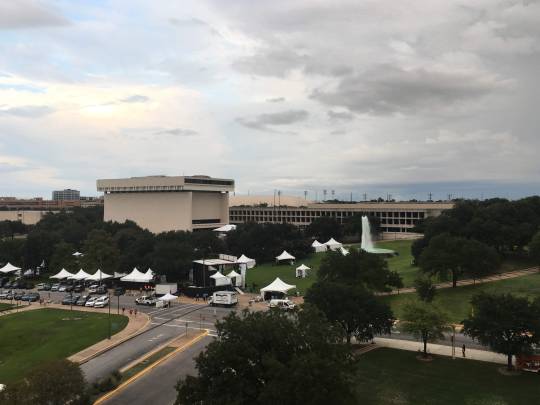






UT vs. Tulsa game at the Darrell K Royal–Texas Memorial Stadium. Hook 'Em Horns! 🤘🤘September 8, 2018.
Top 4 pictures are from the game. Rest are the view of campus from the stadium. Can see the LBJ Presidential Library, the Bass Concert Hall, and the UT Tower.
#Darrell K Royal Texas Memorial Stadium#UT Stadium#UT Longhorns#Longhorns#Hook 'Em Horns#LBJ Presidential Library#Bass Concert Hall#UT Tower#UT Main Building#University of Texas at Austin#UT Austin#University of Texas System#Austin#Texas
0 notes
Text
NO KINGS - Read Up to Fight Back
The U.S. government is not your friend or your protector, it's a system organized and operated by dominant social classes in order to maintain one thing: the status quo. Here are some educational resources to learn more about the ways that people have changed the status quo for the better in the past, and about the government itself so that you can better prepare to take action and defend the rights of yourself and others in the future.
Executive Orders, Bills, and Mandates
House Bill Schedule - This page provides access to a weekly schedule of bills (PDF text included for your review) being considered by the House of Representatives, as well as links to the House Proceedings and official publications from the U.S. Government.
Congressional Legislation Search - This page provides access to ALL public records for the House of Representatives and Senate alike. The link provided will take you to the current list of legislative items pending review, but you can also see Committee reports, Congressional Records, Communications, etc.
Presidential Actions - A searchable record provided by the White House of Executive Orders, Nominations & Appointments, Presidential Memoranda, and Proclamations.
Presidential Fact Sheets - Bullet point mini-articles that chronicle Trump's actions as President. Lots of propaganda and misinformation here but a useful rhetorical reference.
Theory
These are books and articles about the "puzzle pieces" that make up many of the systemic issues we're seeing today. Links are to free, downloadable PDFs unless otherwise indicated.
Domination and Arts of Resistance by James C. Scott (BOOK) - a must-read for people who want to gain an understanding of power dynamics between government/socially dominant groups and those who strive to make their voices heard.
Culture & Imperialism by Edward Said (BOOK) - A key text for learning about the development of imperial "us versus them" ideology and the changes those flawed ideals wrought through history.
Discipline & Punish by Michele Foucault (BOOK) - Really good look at the social dynamics and theory behind western prison systems.
City of Quartz by Mike Davis (BOOK) - Yeah, I now it's an "environmental history" but it references some truly fascinating architectural representations of oppression *and the means used to escape*. Also I know it's a Columbia link, sorry.
History
The Long Civil Rights Movement and Political Uses of the Past by Jacqueline Dowd Hall (ARTICLE)
The People are Revolting: The History of Protest by BBC Bitesize (TIMELINE - no PDF)
How Do Dictatorships Survive in the 21st Century by Sergei Guryev and Daniel Treisman (ARTICLE - no PDF)
Dictatorship in the American Founding by Adam Lebovitz (ARTICLE)
U.S. Immigration Primary Sources 1851-1900 by Library of Congress
Historical Overview of Immigration Policy by Center for Immigration Studies (This org may be negatively influenced - need to do more research)
4 notes
·
View notes
Text
Ending a two-decade program to give people in poor countries anti-HIV medication will cause millions to develop AIDS and die. It's also a massive national security disaster.
The Trump administration cruelly and abruptly stopped the distribution of live-saving antiretroviral drugs to almost 26 million people worldwide. The program, the President’s Emergency Plan for AIDS Relief—PEPFAR—is the global health program started by Republican president George W. Bush in 2003. He celebrated the 20 year anniversary in 2023 at his presidential library.
While the White House has called this a “pause,” The New York Times described it in more dire terms:
On Monday afternoon, officials worldwide were alerted that PEPFAR’s data systems would shut down at 6 p.m. Eastern — roughly three hours after the email was received — immediately closing off access to all data sets, reports and analytical tools.
“Users should prioritize copying key documents and data,” said the email viewed by The Times.
The message prompted speculation that the program would not resume, as its future was already in question.
The Times noted, in what seems like pure evil, that the administration, “has instructed organizations in other countries to stop disbursing H.I.V. medications purchased with U.S. aid, even if the drugs have already been obtained and are sitting in local clinics.”
119 notes
·
View notes
Text
Rosalynn Carter (1927-2023)
Rosalynn Carter has died at the age of 96. She was one of the more influential First Ladies – ranking behind just Eleanor Roosevelt and Hillary Clinton.
Rosalynn Carter, the wife of former President Jimmy Carter and a longtime mental health advocate and humanitarian, died on Sunday in her home in Plains, Ga., surrounded by family, according to the Carter Center. She was 96. The Carter Center announced Rosalynn Carter was in hospice care on Friday. Her family said earlier this year that she was diagnosed with dementia. Jimmy Carter, who is 99, has been in hospice care since February. "Rosalynn was my equal partner in everything I ever accomplished," the former president said in a statement. "She gave me wise guidance and encouragement when I needed it. As long as Rosalynn was in the world, I always knew somebody loved and supported me." Rosalynn Carter was first lady from 1977 to 1981 and was dubbed the "Steel Magnolia" by the press during her years in the White House for the toughness she exhibited behind the gentle persona she outwardly embraced. Throughout Jimmy Carter's time in public office, she was her husband's closest political adviser. She also revolutionized and professionalized the first lady role by expanding the office beyond hostess duties. [ ... ] After her husband was elected president, Carter ushered in a new era as first lady. She attended Cabinet meetings and was only the second first lady to testify before Congress. According to Brower, she took a professional approach to the role, exemplified by the fact that she was the first presidential spouse to carry a briefcase to the office on a daily basis. "I think Rosalynn was a feminist and somebody who wanted to be a true partner to her husband," Brower said. "And she didn't see any reason why she shouldn't be allowed to do that."
She had been an advocate for mental health long before she came to Washington.
As first lady of Georgia, Carter encouraged her husband to establish a governor's commission on mental health, which outlined an influential plan to shift treatment from large institutions to community centers. "She really began the effort in this country to modernize mental health care," Cade said. "And the mental health care system that we have today in many ways reflects her 50 years of advocacy." Carter was also an early advocate for reducing the stigma around mental illness and, in speeches, often framed mental health care as "a basic human right." In 1980, President Carter signed the Mental Health Systems Act, which provided grants for community mental health clinics, one of many achievements credited, at least in part, to his wife's advocacy in the U.S. and globally.
Mental health as a basic human right is one of Rosalyn Carter's legacies.
On the subject of mental health, Mrs. Carter took part in a forum at the JFK Presidential Library in November of 2010.
ROSALYNN CARTER ON THE MENTAL HEALTH CRISIS | JFK Library
#rosalynn carter#jimmy carter#mental health#reducing the stigma of mental illness#the carter center#georgia
39 notes
·
View notes
Text
Presidential Library? I think not... Not even a book mobile... Biden thinks that the Dewey Decimal system is a potential donor?

3 notes
·
View notes
Text

The New York Times
By Tiffany Hsu
April 5, 2025
Soon after the new administration arrived, things began to go missing from the White House website.
They weren’t just the partisan policy platforms that typically disappear during a presidential transition. Informational pages about the Constitution and past presidents, up in various forms since President George W. Bush was in office, all vanished.
Thousands of other government web pages had also been taken down or modified, including content about vaccines, hate crimes, low-income children, opioid addiction and veterans, before a court order temporarily blocked part of the sweeping erasure. A Justice Department database tracking criminal charges and convictions linked to the Jan. 6, 2021, attack on the Capitol was removed. Segments of data sets are gone, some of the experts who produced them were dismissed, and many mentions of words like “Black,” “women” and “discrimination” have evaporated.
President Trump’s team is selectively stripping away the public record, reconstructing his preferred vision of America in the negative space of purged history, archivists and historians said. As data and resources are deleted or altered, something foundational is also at risk: Americans’ ability to access and evaluate their past, and with it, their already shaky trust in facts.
“This is not a cost-cutting mechanism,” said Kenny Evans, who studies science and technology policy at Rice University’s Baker Institute for Public Policy and runs the White House Scientists Archive at the school. “This slide toward secrecy and lack of transparency is an erosion of democratic norms.”
The casualties are not just digital. The head of the National Archives, which has been described as “the custodian of America’s collective memory,” was fired by Mr. Trump in February. A key source of federal funding for public records depositories nationwide, the Institute of Museum and Library Services, was named in an executive order calling for its elimination “to the maximum extent consistent with applicable law” (its acting director said he planned to “restore focus on patriotism”). As the U.S. Agency for International Development was being gutted, a senior official told employees to shred or burn classified documents and personnel files.
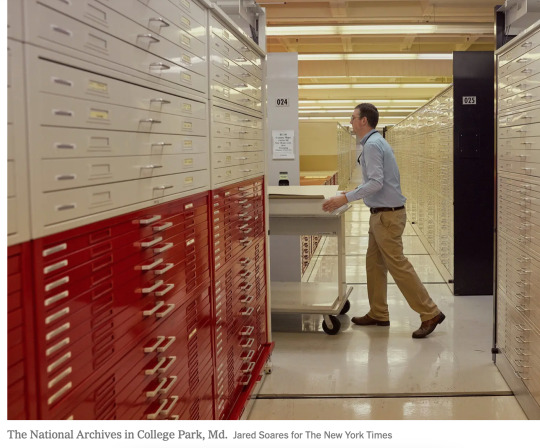
Anna Kelly, a White House spokeswoman, said on X that the disposal process was standard practice for old courtesy copies of paperwork that were largely backed up on classified computer systems. In an emailed statement, she did not address concerns about the removed records, but said that the president regularly communicated with news outlets and directly with the public and was “leading the most transparent administration in history.”
“He is adding transparency by exposing the vast waste, fraud and abuse across the federal government and restoring accountability to taxpayers,” she said.
The campaign of deletion does more than amplify the administration’s policy priorities — it buries evidence of the alternatives in a MAGA-branded memory hole. Several information experts said that Mr. Trump’s executive orders have authoritarian overtones, reminiscent of when Russia cloned Wikipedia, an online encyclopedia, and stripped it of unflattering material. Information experts and civil rights groups fear that a historical vacuum could jeopardize accountability and breed mistrust, especially in an already hostile political environment for researchers who are trying to fight disinformation.
“There are tectonic plates that are shifting, and it’s a new version of truth that is being portrayed, and that, I think, is the most profound danger we have ever faced as a country,” said Laurence H. Tribe, a constitutional scholar and professor emeritus at Harvard Law School.
Even Utah’s Republican lieutenant governor called on Mr. Trump to “bring back our history” after the first American woman to legally vote was removed from the website for Arlington National Cemetery, along with a section on other notable women (her profileis once again available, but the women’s history section is not). References to transgender people disappeared from the National Park Service’s web page for the Stonewall National Monument.
Mr. Trump is not known as an enthusiast of document preservation: Past employees have described his penchant for ripping up documents and flushing papers down the toilet.
But his administration has surfaced some government data. In March, the National Archives released some 64,000 documentsabout the assassination of President John F. Kennedy, including accounting records that contained the Social Security numbers of dozens of government workers from the late 1970s, some of them still living.
The restructuring effort led by Elon Musk through his Department of Government Efficiency, which had been caught in a series of high-profile errors, tried to delete or obscure the mistakes before reversing course last month and adding more details that fact-checkers could use to confirm its claims about the savings it had achieved from canceling federal grants.
In February, a federal judge ordered the Centers for Disease Control and Prevention and several other health agencies to temporarily restore pages that had been scrubbed on Mr. Trump’s orders. The Defense Department said it would republish pagesabout Jackie Robinson’s military service, the Enola Gay B-29 bomber that dropped the first atomic bomb, the Tuskegee Airmen, the Navajo Code Talkers and others.

The historical record, however, remains under intense pressure and not just from the government.
Mr. Musk has a vendetta against Wikipedia, which the billionaire derided as “Wokepedia” last year. He called the encyclopedia, which is written and edited by volunteers from the general public, “an extension of legacy media propaganda” after an entry described a gesture he had made during Mr. Trump’s recent inauguration as being “compared to a Nazi salute.” Jimmy Wales, a founder of Wikipedia, pushed back on the social media platform X, saying “that’s fact. Every element of it.”
Data Foundation, a think tank, said in a report last month that changes in federal evidence gathering are coinciding with similar shifts in the private data sector. Those include more than 2,000 layoffs and other departures in March and several analysis firms shutting down entirely. A year ago, Google also removed links to cached pages from its search results, stripping away a longtime feature that helped researchers and others track changes on websites.
Resources from the government have become especially important as researchers find themselves limited or cut off from data reserves kept by social media companies, said Samuel Woolley, the disinformation studies chair at the University of Pittsburgh.
“The idea that suddenly we no longer need oversight or access to the information that allows us to conduct oversight is worrying,” he said. “Getting rid of public records and people who study things like influence operations amounts to a kind of censorship by omission.”
Outside the government, many archivists are now rushing to preserve endangered material.
The Data Rescue Project, which launched in February, is cataloging preservation efforts and backed up government data sets. Since 2008, the End of Term Web Archive has conducted “a comprehensive harvest” of federal government domains and chronicled changes from administration to administration. Initiatives like the Environmental Data & Governance Initiative and the Open Environmental Data Project are storing copies of government climate data.

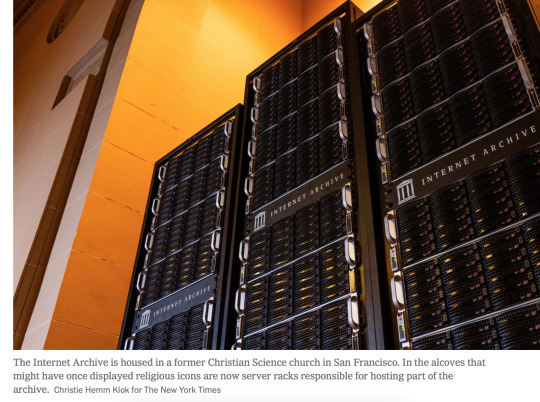
Another key participant: The Internet Archive, a 28-year-old nonprofit library housed in a stately former Christian Science church in San Francisco. Some 140 workers, mostly engineers, archive more than a billion URLs a day with help from partners such as Cloudflare, WordPress, Reddit and Wikipedia’s parent organization, Wikimedia. The work is funded through donations and web archiving agreements with more than 1,300 schools, museums and libraries.
The Archive has collected more than 700,000 terabytes of archived web pages as one of the partners working on the End of Term project, identifying more than 150,000 government pages that have gone offline since the inauguration.
“What we’re seeing this time around is unprecedented, both in terms of the scope and the scale of the web-based resources that are being taken offline, and material on those pages that is being changed,” said Mark Graham, the director of the Wayback Machine, a digital repository operated through the Internet Archive.
The Archive has faced difficulties in recent years, such as copyright lawsuits from record labels and book publishers seeking hundreds of millions of dollars in damages (the organization had a $28 million budget in 2023). It has also been targeted by cyberattacks.
The Trump administration, however, has not been an obstacle. Mr. Musk has called the archive “awesome” and “a public good that should exist,” even as he complained about “a ton of negative” content that concerned him.
In February, government lawyers argued that the removal of information from the C.D.C. website caused limited harm because the scrubbed pages could still be viewed on the Wayback Machine. A federal judge disagreed, noting that the site does not capture every page, and the ones that are archived do not appear on search engines and can only be found using their original URL.
Mr. Graham, an Air Force veteran who can rattle off URLs from memory, said he has worked seven days a week with few breaks since Mr. Trump took office.
“We’ve seen examples throughout history and all over the world where governments attempt to change culture, change the values of a population by changing and/or restricting access to information,” he said. “I think we still see that to this day.”
2 notes
·
View notes